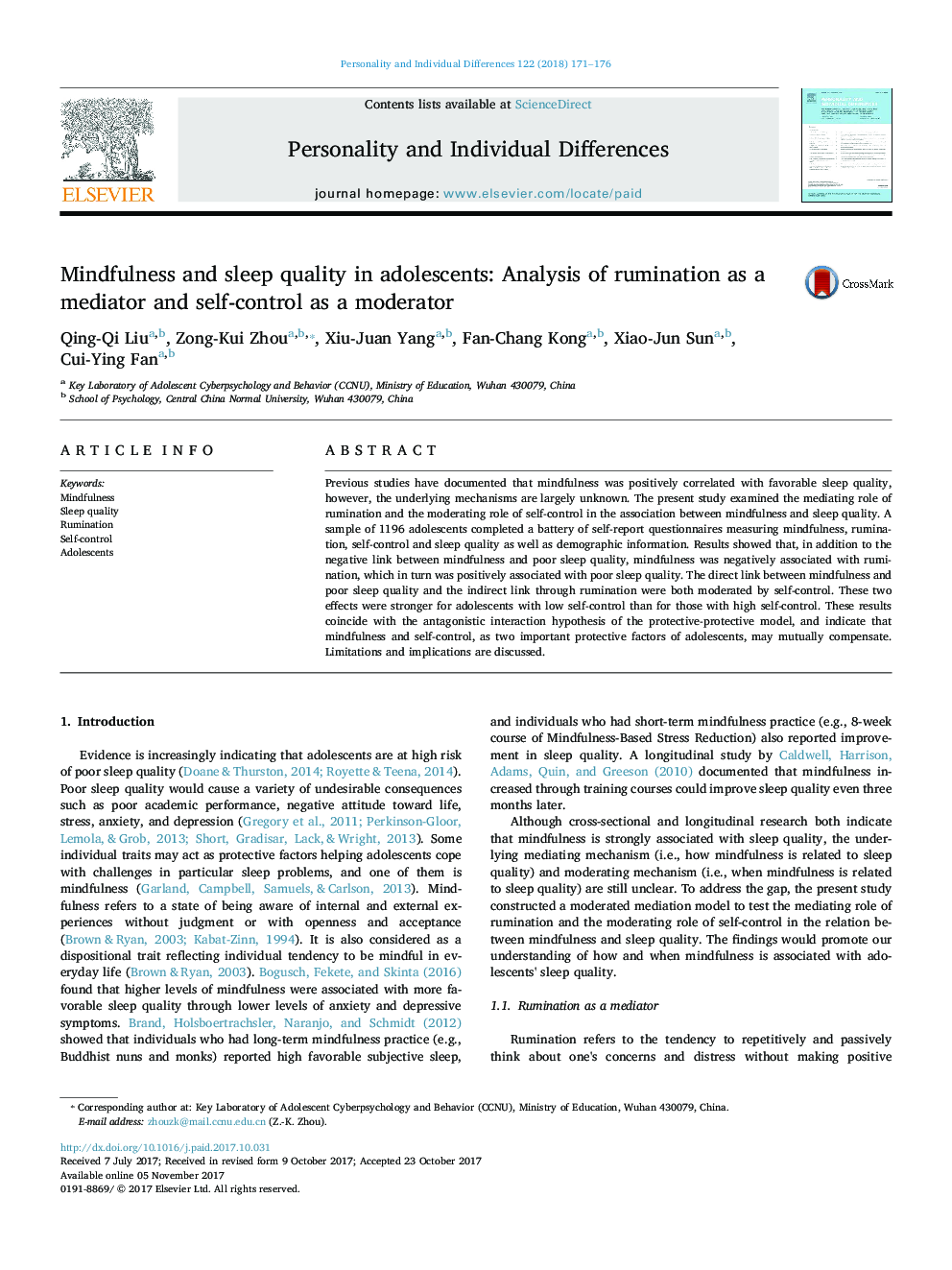| Article ID | Journal | Published Year | Pages | File Type |
|---|---|---|---|---|
| 7249339 | Personality and Individual Differences | 2018 | 6 Pages |
Abstract
Previous studies have documented that mindfulness was positively correlated with favorable sleep quality, however, the underlying mechanisms are largely unknown. The present study examined the mediating role of rumination and the moderating role of self-control in the association between mindfulness and sleep quality. A sample of 1196 adolescents completed a battery of self-report questionnaires measuring mindfulness, rumination, self-control and sleep quality as well as demographic information. Results showed that, in addition to the negative link between mindfulness and poor sleep quality, mindfulness was negatively associated with rumination, which in turn was positively associated with poor sleep quality. The direct link between mindfulness and poor sleep quality and the indirect link through rumination were both moderated by self-control. These two effects were stronger for adolescents with low self-control than for those with high self-control. These results coincide with the antagonistic interaction hypothesis of the protective-protective model, and indicate that mindfulness and self-control, as two important protective factors of adolescents, may mutually compensate. Limitations and implications are discussed.
Related Topics
Life Sciences
Neuroscience
Behavioral Neuroscience
Authors
Qing-Qi Liu, Zong-Kui Zhou, Xiu-Juan Yang, Fan-Chang Kong, Xiao-Jun Sun, Cui-Ying Fan,
